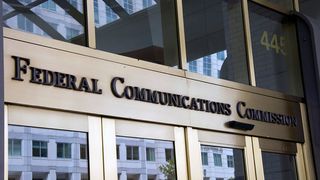Pai Schedules Vote on Main Studio Rule

The FCC has released the tentative agenda for its Oct. 24 meeting and eliminating the main studio rule is on it, as was proposing eliminating some reporting requirements.
The FCC voted May 18 to propose dropping the requirement, which for almost eight decades has required a TV or radio station to maintain a main studio in its community of license.
FCC chairman Ajit Pai said the rule was outdated because in the digital age the community has access and can engage with stations via social media or email without having a physical studio nearby.
He also said maintaining a physical address is an expense better put to other uses, like adding more local programming.
Broadcast attorneys had petitioned the FCC to eliminate the rule.
The FCC initially adopted the in-market requirement to make sure viewers had easy access to their local station and its management. But the commission loosened the rule in 1987 during its Reagan-era broad deregulation of the industry, eliminating a related requirement that a station originated a minimum number of programming hours from such a studio, and further loosened it in 1998, allowing stations still more flexibility.
In a blog post Tuesday (Oct. 3) on the proposal, Pai called it "another step toward the long-overdue modernization of rules governing the media industry."
The chairman also said the meeting would include votes on proposals to eliminate the requirement that TV stations report annually on their use of digital spectrum to offer ancillary services if they didn't use it for that purpose and to collect comment on the rules requiring broadcasters to provide public notice of filing broadcast applications in newspapers and/or over-the-air announcements.
Broadcasting & Cable Newsletter
The smarter way to stay on top of broadcasting and cable industry. Sign up below
Contributing editor John Eggerton has been an editor and/or writer on media regulation, legislation and policy for over four decades, including covering the FCC, FTC, Congress, the major media trade associations, and the federal courts. In addition to Multichannel News and Broadcasting + Cable, his work has appeared in Radio World, TV Technology, TV Fax, This Week in Consumer Electronics, Variety and the Encyclopedia Britannica.

